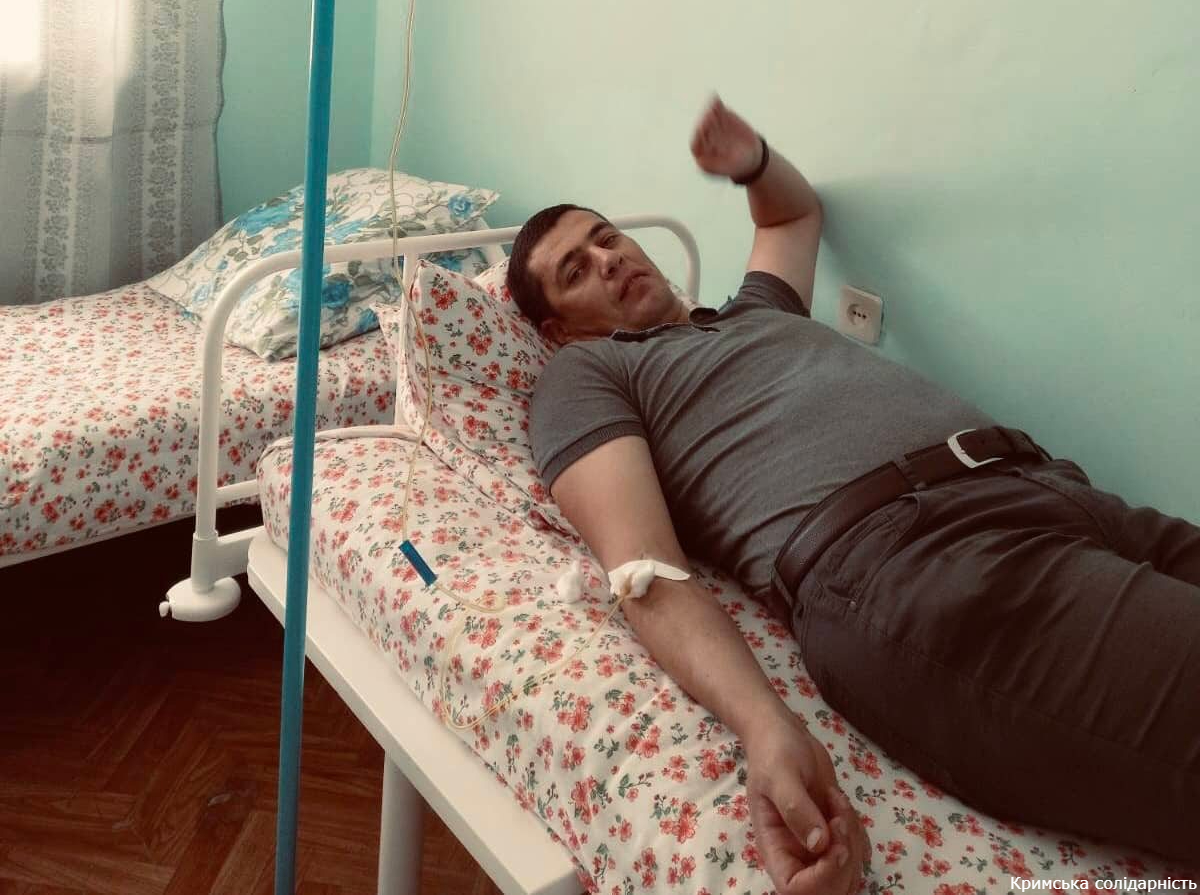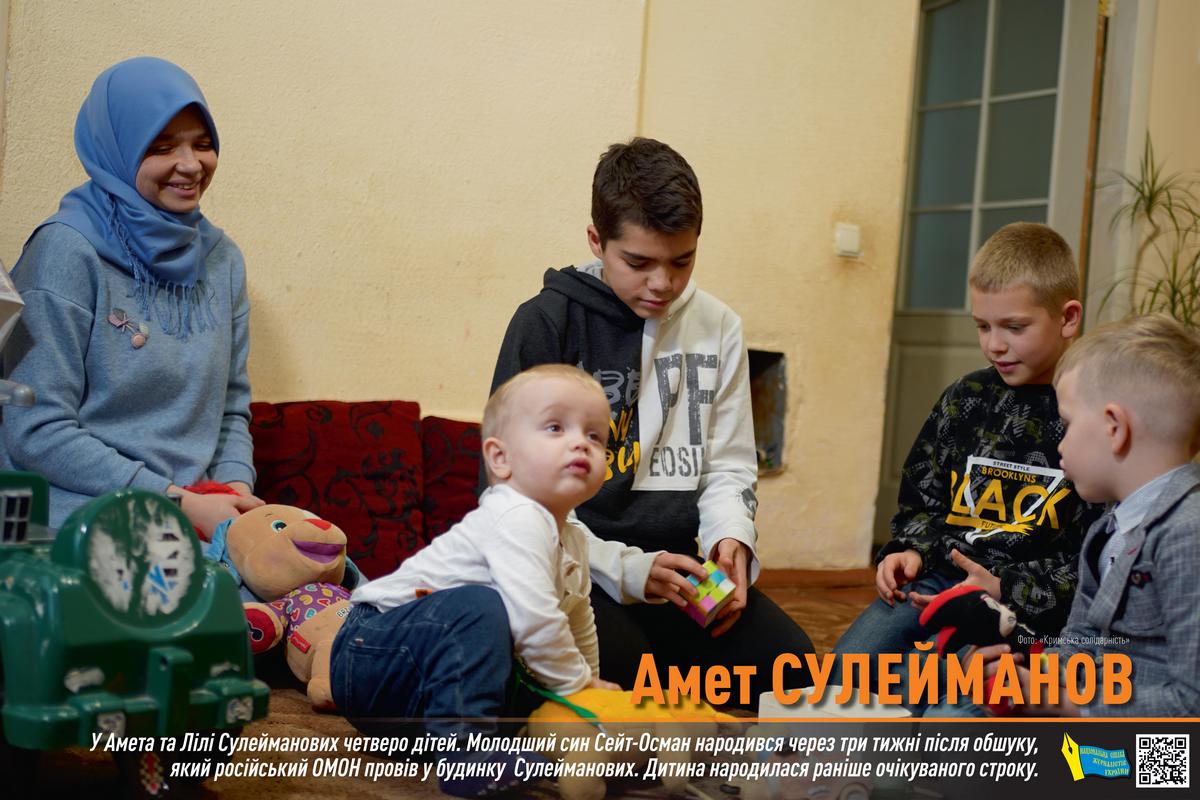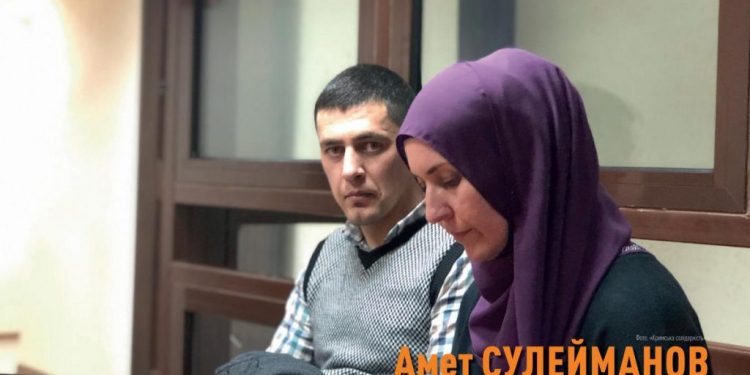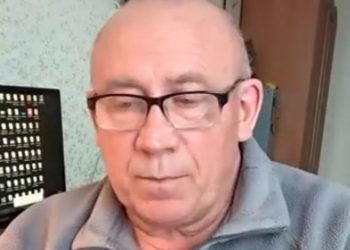Citizen journalist Amet Suleymanov is a defendant under the third Bakhchysarai case of Hizb ut-Tahrir, a political party banned in russia. Under the pretext of being its member, the russians fabricated cases against the Crimean Tatars, who did not accept the occupation of the peninsula and were trying to fight the regime. On October 29, 2021, the Southern District Military Court of Rostov-on-Don sentenced Amet Suleymanov to 12 years in a high-security prison.
Along with him, Seytumer Seytumerov, 17, Osman Seytumerov, 14, and Rustem Seytmemetov, 13, were sentenced to long prison terms, but Suleymanov was the only one of the defendants who was under house arrest during the investigation and trial due to his health. He suffers from arterial and mitral insufficiency, so doctors recommended he replace the heart valve. The man needs constant medical care. Amet‘s disease is included in the government’s list of diseases, preventing detention. But this is not an argument for the occupiers. On April 5, 2023, russian security forces took Amet from his home to serve his sentence as the sentence came into effect. Relatives are convinced that the man’s stay behind bars can become a death sentence for him.
The ZMINA Human Rights Center implements the project titled Gafarov-Shyrinh List: Rescue of Crimean Political Prisoners at Risk,” which monitors the detention of political prisoners at risk of death from prison detention regardless of their health. Crimean Tatar activist Dzhemil Gafarov died at the beginning of February 2023 in the Novocherkassk pre-trial detention center of the Rostov Oblast. He was 60 years old. Even before his illegal imprisonment in 2017, Gafarov suffered a myocardial infarction, and soon after, he was diagnosed with chronic renal failure with impaired renal filtration. In November 2022, Gafarov suffered a heart attack. According to him, the pre-trial detention center administration refused him medical care. His lawyers have repeatedly said that detention in a pre-trial detention center is dangerous for the man’s life. Also, at the beginning of February 2023, Ukrainian Kostiantyn Shyrinh, 61, died in Colony 5 of the city of Novotroitsk, Orenburg Oblast. He was serving an illegal 12-year sentence on charges of “espionage.” The man needed heart surgery and repeatedly sought medical help but never received it. Kostiantyn Shyrinh arrived at the colony in the Orenburg Oblast of russia on June 1, 2022. Its phasing lasted more than two months. According to the man, the difficult conditions affected his health, which everyone was indifferent to. He told the defense that absolutely all his medicines and even a tonometer were taken away from him.
The situation with Amet Suleymanov is typical for political prisoners in Crimea. Last July, the Southern District Military Court of Rostov-on-Don sentenced Crimean Tatar activist Azamat Eyupov, 59, to 17 years in a penal colony. He was found guilty on the basis of obviously fabricated evidence. The defense and the family are convinced that the russians are actually punishing Eyupov for his citizenship. Even before his arrest, Eyupov was diagnosed with atherosclerotic heart disease. Because of this, he has complications with blood supply and a tendency to form blood clots with subsequent heart attack or stroke. During his stay in the pre-trial detention center, the man had already suffered four ischemic strokes.

Citizen journalist and human rights defender Iryna Danylovych was detained by the occupiers on the way from Koktebel to Feodosia on April 29, 2022. She was charged with “working with explosives.” On December 28, 2022, the occupation “court” of Feodosia sentenced Danylovych to seven years in prison on charges of illegal possession and manufacture of explosives. She did not admit her guilt. In prison, Iryna‘s health began to deteriorate rapidly: the woman fainted, had an ear infection, and at least risks losing her hearing. The head of the ZMINA Human Rights Center, Tetiana Pechonchyk, is convinced that these Kremlin prisoners risk losing their lives in prison because of their health.
According to data at the end of July this year, civilian journalist Amet Suleymanov, who was detained by russian security forces on April 6, also had a worsening health condition. Suleymanov was under house arrest for three years because of his health. The journalist suffers from arterial and mitral insufficiency of the heart; he urgently needs to undergo an operation to replace the heart valve. But on April 6 of this year, Amet Suleymanov was taken into custody and taken to a detention center. According to the latest data from lawyer Emil Kurbedinov, Suleymanov suffers from constant headaches and heartaches. The Memorial Human Rights Center recognized Amet Suleymanov as a political prisoner.


 THE NATIONAL UNION OF
JOURNALISTS OF UKRAINE
THE NATIONAL UNION OF
JOURNALISTS OF UKRAINE
















Discussion about this post